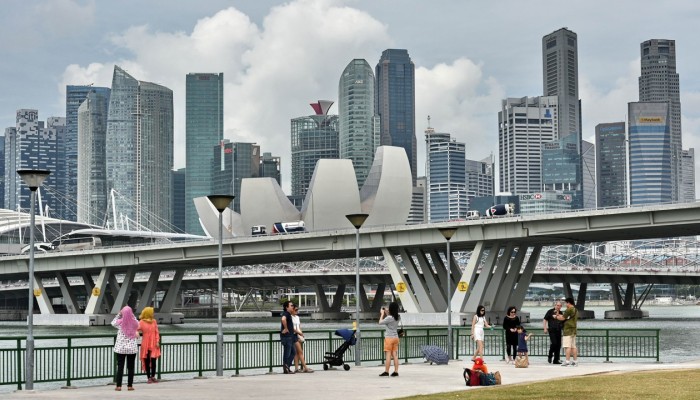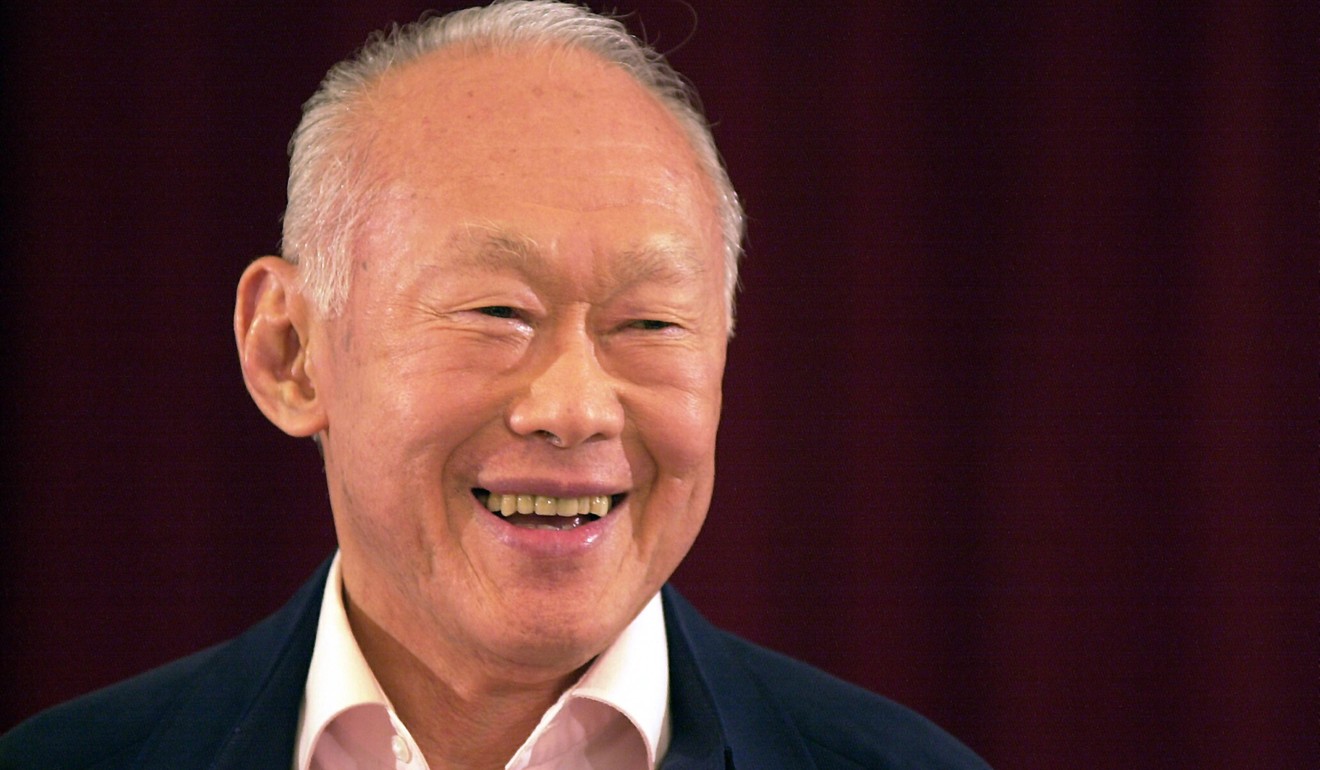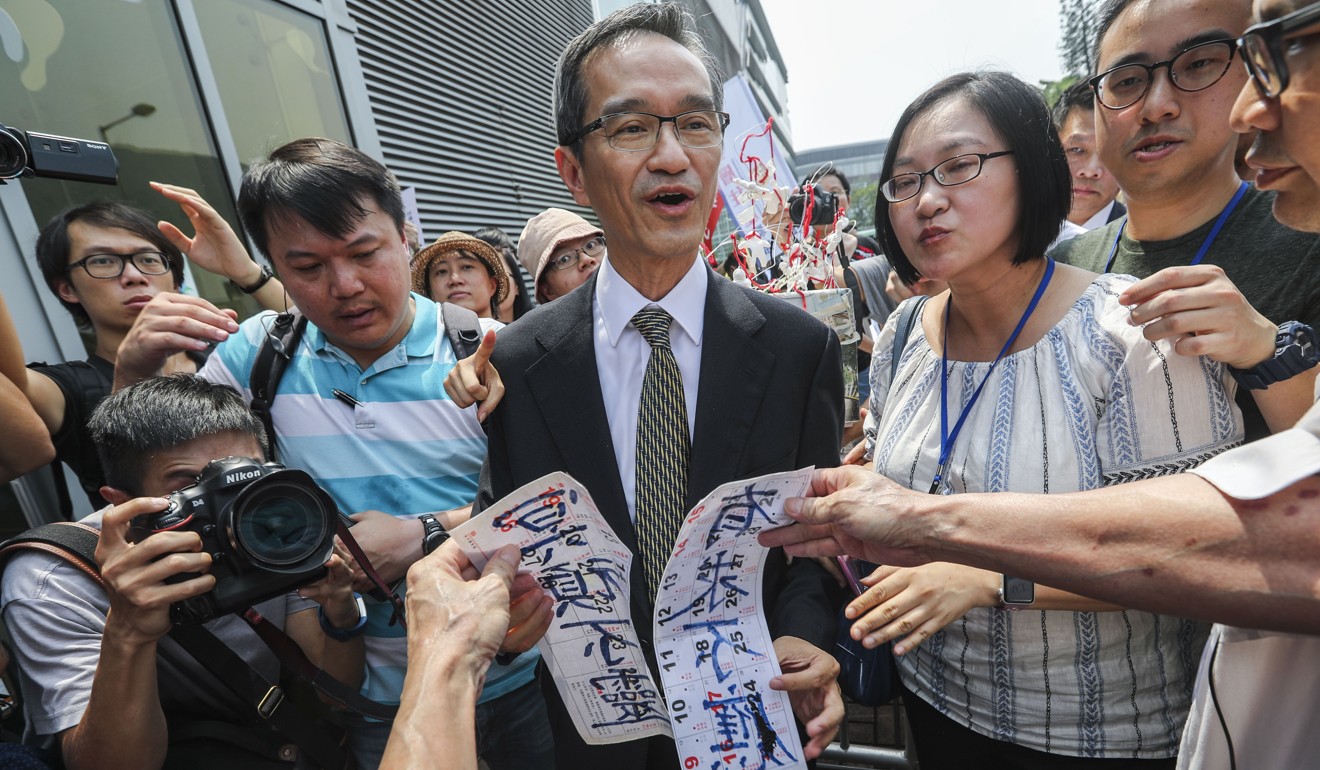- Joined
- Apr 14, 2011
- Messages
- 18,791
- Points
- 113
Singapore’s strong leadership leaves Hong Kong trailing in education, technology and the economy
Regina Ip says the main reason Hong Kong’s fellow ‘little dragon’ has surpassed it is because Singapore’s leaders, starting with Lee Kuan Yew, have shown more interest in real long-term solutions
Regina IpSaturday, 15 Sep 2018, 9:14PM

“A tale of two cities”, the title of Charles Dickens’ classic novel, has often been used to describe the love-hate relationship between Hong Kong and Singapore, the “little dragons” of Asiawhich made history in the 1990s as part of the World Bank’s narrative on the “East Asian miracle”.
For a long time, the two cities were neck and neck in competitiveness, free markets, container terminal throughput, their airports and various economic and educational measurements. In the past decade, however, the divergence in development between the cities has started to widen, and the disparity is not confined to economic performance.
There is a general sense that Singapore has surpassed Hong Kong as a vibrant economy and as a relatively harmonious society with a common dream. Singapore’s international reputation reached a zenith recently in the first all-Asian cast, Hollywood hit movie Crazy Rich Asians . While some critics are right to take the screenwriters to task for the glorification of ostentatious consumption, the movie unmistakably shows a conspicuous pivoting of wealth to Asia – as symbolised by Singapore.
Hong Kong’s underperformance is particularly troubling, given the support it consistently receives from China, its motherland and geographical hinterland. Mainland China provides a rich pool of resources for the city’s sustenance, an ample source of liquidity and a booming market for the city’s services.
By contrast, to tap into China’s market and manufacturing prowess, Singapore has to use its ingenuity to work out one project after another to hitch itself to China, starting with the China-Singapore Suzhou Industrial Park in 1994, the Sino-Singapore Tianjin Eco City in 2007 and, most recently, the Sino-Singapore Chongqing Connectivity Initiative, a joint venture designed to siphon some of China’s trade through the “southern channel”.
As an “inalienable part of China” and its first special administrative region, Hong Kong has a natural pride of place in the nation. Yet cultural differences, ideological conflict, historical baggage and perhaps persistent weakness in the local administration’s efficacy and credibility appear to have combined, making it hard for Hong Kong to take full advantage of China’s assets as the world’s second-largest economy.
Where the real crazy rich Asians of Singapore hang out
Why Hong Kong should be celebrating the breakthrough in science funding from Beijing
Hong Kong’s problems of political integration with the rest of China apart, there are two main reasons for its underperformance relative to Singapore – the quality of leadership and the nature of its political system. Singapore benefited from the outset from its founding prime minister, Lee Kuan Yew, and his outstanding foresight, determination and leadership.
Never afraid to lay out his vision, Lee laid the foundation for a Singapore that is to be led by ambitious and forward-looking elites. Undaunted by Western beliefs in egalitarianism and the primacy of the individual, in a famous interview by Fareed Zakaria in Foreign Affairs in 1994, Lee spelt out his conviction that it was Confucian culture, with its strong belief in the sanctity of the family and the overriding importance of societal harmony, which set the East Asian “dragons” apart from struggling, American-style democracies in many developing countries.
“Men are not equal,” Lee pronounced; the individual is not “pristine and separate” but exists in the context of the family. Above all, man needs “a certain moral sense of right and wrong”, which means the government has a duty to lead, rather than hide behind bureaucratic and technical reasons for not taking decisions.

Lee Kuan Yew, a true economist
Singapore under Lee thus made tough choices. It chose to groom an elite cadre of leaders and administrators committed to serving the nation; it chose to adopt an industrial policy which ensures that high-end manufacturing stays in Singapore, and Singaporean corporations and citizens maintain a wide range of competencies (sadly lacking in Hong Kong). It has worked hard continuously to foster a culture of innovation and experimentation, and a persistent quest for excellence.
By contrast, Hong Kong has sought to swell the percentage of its student population in higher education through artificial means, expanding quantity at the expense of quality. At the turn of the century, funds were poured into sub-degree programmes to mitigate the number of unemployed youths.
During the Donald Tsang Yam-kuen administration, substantial government help was provided to “self-funded” colleges so that more high-school graduates with poor grades could have access to tertiary education.
Quantitative targets have been met, but employers are troubled by the poor academic and professional standards of many such graduates, who might have benefited more from vocational training and diploma-level education. Students have complained about high fees and poor standards of some of the “self-funded” programmes.
Hong Kong should give vocational training the credit it deserves
In 2015, incumbent Singaporean Prime Minister Lee Hsien Loong established the Committee on the Future Economy, to look into the five areas critical to Singapore’s future development. In Hong Kong, successive chief executives have established various “commissions” on strategic development, a task force on economic challenges, a “council of advisers on innovation and strategic development” and so on.

But they remain no more than old wine in new bottles and a collection of familiar faces and scions from Hong Kong’s wealthy families. Few innovative ideas have come out of such committees. Technological development has only picked up speed in recent years due to a strong push from Beijing.
Must dysfunctional, declining Hong Kong now look to Guiyang as a role model?
Singapore now overshadows Hong Kong in the international media, with its fourth airport terminal lauded as “the terminal of the future”, and its container terminal as the hub of the maritime Silk Road trade. A recent report in The Economist heaps praise on Singapore’s education system, and its readiness to experiment by de-emphasising exams, privileging teacher training and the development of 21st century skills.
Singapore charges forward, while Hong Kong continues to be mired in protracted debates on everything ranging from tree management to land supply. It is not hard to conclude which city leads the race.
Regina Ip Lau Suk-yee is a lawmaker and chairwoman of the New People’s Party
Regina Ip says the main reason Hong Kong’s fellow ‘little dragon’ has surpassed it is because Singapore’s leaders, starting with Lee Kuan Yew, have shown more interest in real long-term solutions
Regina IpSaturday, 15 Sep 2018, 9:14PM

“A tale of two cities”, the title of Charles Dickens’ classic novel, has often been used to describe the love-hate relationship between Hong Kong and Singapore, the “little dragons” of Asiawhich made history in the 1990s as part of the World Bank’s narrative on the “East Asian miracle”.
For a long time, the two cities were neck and neck in competitiveness, free markets, container terminal throughput, their airports and various economic and educational measurements. In the past decade, however, the divergence in development between the cities has started to widen, and the disparity is not confined to economic performance.
There is a general sense that Singapore has surpassed Hong Kong as a vibrant economy and as a relatively harmonious society with a common dream. Singapore’s international reputation reached a zenith recently in the first all-Asian cast, Hollywood hit movie Crazy Rich Asians . While some critics are right to take the screenwriters to task for the glorification of ostentatious consumption, the movie unmistakably shows a conspicuous pivoting of wealth to Asia – as symbolised by Singapore.
Hong Kong’s underperformance is particularly troubling, given the support it consistently receives from China, its motherland and geographical hinterland. Mainland China provides a rich pool of resources for the city’s sustenance, an ample source of liquidity and a booming market for the city’s services.
By contrast, to tap into China’s market and manufacturing prowess, Singapore has to use its ingenuity to work out one project after another to hitch itself to China, starting with the China-Singapore Suzhou Industrial Park in 1994, the Sino-Singapore Tianjin Eco City in 2007 and, most recently, the Sino-Singapore Chongqing Connectivity Initiative, a joint venture designed to siphon some of China’s trade through the “southern channel”.
As an “inalienable part of China” and its first special administrative region, Hong Kong has a natural pride of place in the nation. Yet cultural differences, ideological conflict, historical baggage and perhaps persistent weakness in the local administration’s efficacy and credibility appear to have combined, making it hard for Hong Kong to take full advantage of China’s assets as the world’s second-largest economy.
Where the real crazy rich Asians of Singapore hang out
Why Hong Kong should be celebrating the breakthrough in science funding from Beijing
Hong Kong’s problems of political integration with the rest of China apart, there are two main reasons for its underperformance relative to Singapore – the quality of leadership and the nature of its political system. Singapore benefited from the outset from its founding prime minister, Lee Kuan Yew, and his outstanding foresight, determination and leadership.
Never afraid to lay out his vision, Lee laid the foundation for a Singapore that is to be led by ambitious and forward-looking elites. Undaunted by Western beliefs in egalitarianism and the primacy of the individual, in a famous interview by Fareed Zakaria in Foreign Affairs in 1994, Lee spelt out his conviction that it was Confucian culture, with its strong belief in the sanctity of the family and the overriding importance of societal harmony, which set the East Asian “dragons” apart from struggling, American-style democracies in many developing countries.
“Men are not equal,” Lee pronounced; the individual is not “pristine and separate” but exists in the context of the family. Above all, man needs “a certain moral sense of right and wrong”, which means the government has a duty to lead, rather than hide behind bureaucratic and technical reasons for not taking decisions.

Lee Kuan Yew, a true economist
Singapore under Lee thus made tough choices. It chose to groom an elite cadre of leaders and administrators committed to serving the nation; it chose to adopt an industrial policy which ensures that high-end manufacturing stays in Singapore, and Singaporean corporations and citizens maintain a wide range of competencies (sadly lacking in Hong Kong). It has worked hard continuously to foster a culture of innovation and experimentation, and a persistent quest for excellence.
By contrast, Hong Kong has sought to swell the percentage of its student population in higher education through artificial means, expanding quantity at the expense of quality. At the turn of the century, funds were poured into sub-degree programmes to mitigate the number of unemployed youths.
During the Donald Tsang Yam-kuen administration, substantial government help was provided to “self-funded” colleges so that more high-school graduates with poor grades could have access to tertiary education.
Quantitative targets have been met, but employers are troubled by the poor academic and professional standards of many such graduates, who might have benefited more from vocational training and diploma-level education. Students have complained about high fees and poor standards of some of the “self-funded” programmes.
Hong Kong should give vocational training the credit it deserves
In 2015, incumbent Singaporean Prime Minister Lee Hsien Loong established the Committee on the Future Economy, to look into the five areas critical to Singapore’s future development. In Hong Kong, successive chief executives have established various “commissions” on strategic development, a task force on economic challenges, a “council of advisers on innovation and strategic development” and so on.

But they remain no more than old wine in new bottles and a collection of familiar faces and scions from Hong Kong’s wealthy families. Few innovative ideas have come out of such committees. Technological development has only picked up speed in recent years due to a strong push from Beijing.
Must dysfunctional, declining Hong Kong now look to Guiyang as a role model?
Singapore now overshadows Hong Kong in the international media, with its fourth airport terminal lauded as “the terminal of the future”, and its container terminal as the hub of the maritime Silk Road trade. A recent report in The Economist heaps praise on Singapore’s education system, and its readiness to experiment by de-emphasising exams, privileging teacher training and the development of 21st century skills.
Singapore charges forward, while Hong Kong continues to be mired in protracted debates on everything ranging from tree management to land supply. It is not hard to conclude which city leads the race.
Regina Ip Lau Suk-yee is a lawmaker and chairwoman of the New People’s Party
